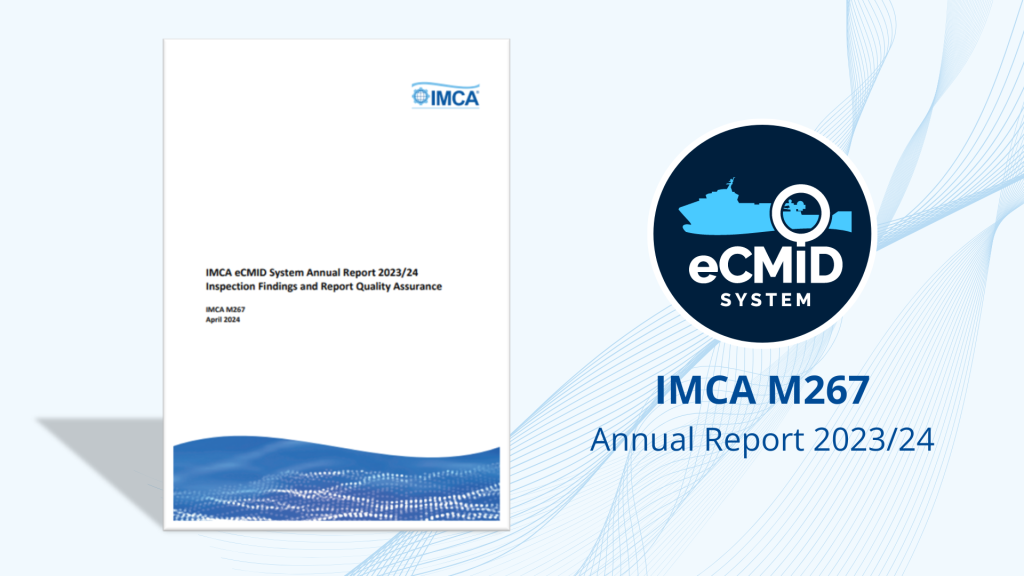Inadequate control on confined spaces highlighted in eCMID vessel inspection analysis
Published on 4 June 2024
Analysis of more than 1,600 vessel inspection reports in year to 1 April 2024 reveals ongoing safety concerns over confined spaces.
A new report from IMCA has analysed 1,611 standard vessel inspection reports uploaded to IMCA’s eCMID (Common Marine Inspection Documents) and eMISW (Common Marine Inspection Documents for Small Workboats) database in the previous year.
The eCMID system provides the marine and offshore industry with standardised formats for vessel inspection. Offering a Safety Management System ‘health check’, it improves the quality and consistency of inspections, while reducing their frequency through the adoption of commonly recognised processes.


IMCA Contact
Mark Ford
Marine & Quality Manager
Contact
Our analysis found that in the last year:
- 7% did not have a technical inspection by the vessel operator.
- 9% did not adequately control enclosed space entry.
- 12% did not inspect the pilot ladder before use.
- 10% did not have procedures on the handling of chemicals and flammable materials.
- 11% did not have cybersecurity measures in place.
- 5% did not carry sufficient medical supplies on board.
Commenting on the findings, Mark Ford, Marine and Quality Manager at IMCA, said: “In last year’s report, we highlighted controlled entry into confined spaces as one of the major safety concerns, and we’re disappointed to see a similar trend in this year’s analysis.”
“From the beginning of all seafarers’ basic training, we are instructed on the hazards and procedures around confined spaces, yet sadly we are continuing to hear of unnecessary fatalities. No one should lose their life doing their job, however more than 300 are known to have died in enclosed spaces on ships since 1996, including 31 in 2023.”
“IMCA will be working with stakeholders across the industry to raise awareness, improve processes, and, of course, will continue to share the lessons learned from incidents via our Safety Flash reporting system.”
The 53-page report (IMCA M267) is freely available to support the improvement of our sector. As well as detailed analysis of inspection finding by vessel type, it includes relevant IMCA Safety Flashes, as well as a review of the report quality assurance process.
